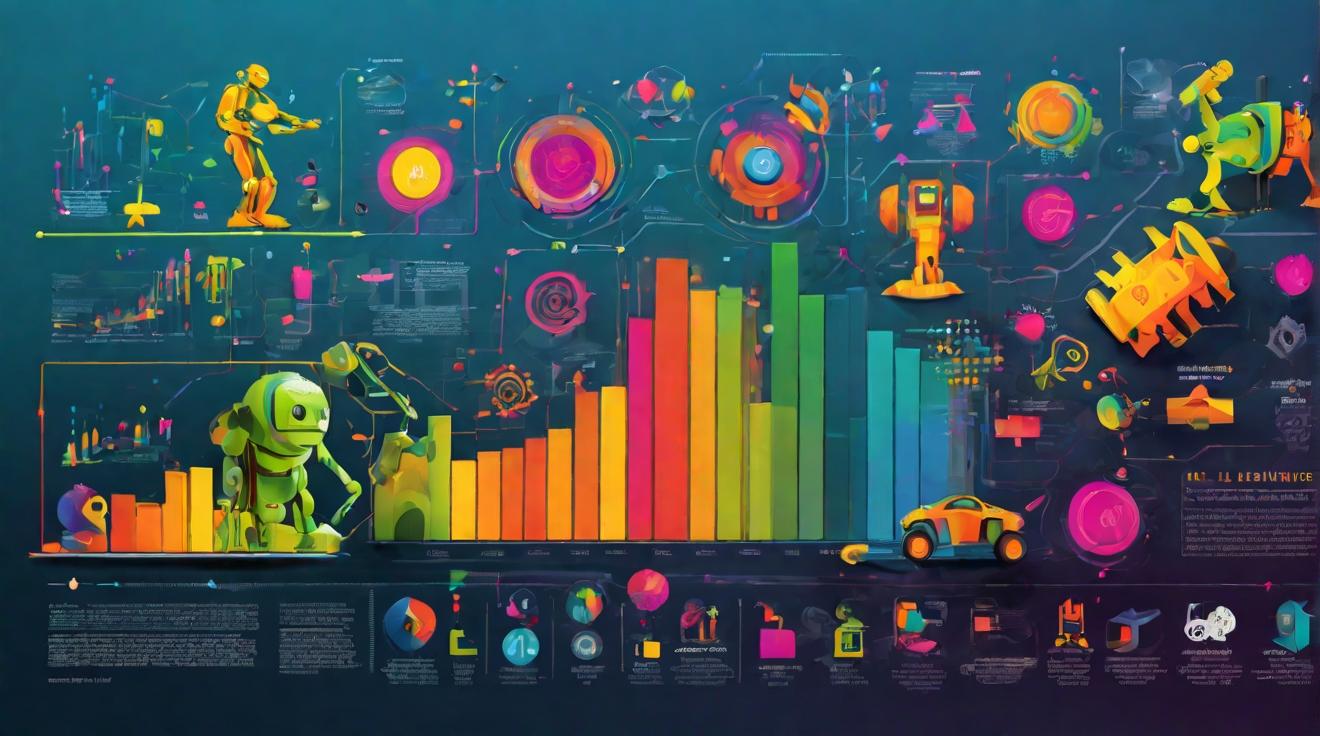AI in Finance: Transforming the Industry from Typewriters to Word Processors
The integration of Generative AI into finance and accounting is rapidly advancing, automating specific tasks and reshaping the landscape. The accounting and finance professions have historically adapted to new technologies—from calculators and spreadsheets to cloud computing. However, the rise of Generative AI introduces both challenges and opportunities for aspiring finance professionals.
Generative AI: Disrupting the Workforce
A recent study by Evercore and Visionary Future analyzed 160 million US jobs, revealing that sectors like legal and financial services are highly susceptible to AI disruption. Although full job replacement is unlikely, Generative AI is expected to enhance productivity significantly, especially in high-value roles with annual salaries exceeding $100,000. For current students and graduates, the challenge lies in navigating these changes and identifying the in-demand skills of the future.
AI: A Game Changer in Accounting and Taxation
Stuart Tait, chief technology officer for tax and legal at KPMG UK, describes Generative AI as a “game changer for tax” due to its ability to handle complex tasks with more than 95 percent accuracy. Tait notes that Generative AI can answer tax queries within minutes, providing efficiency gains comparable to the transition from typewriters to word processors.
Evolving Financial Training Programs
In response to these advancements, financial training programs are increasingly focusing on AI. David Shrier, professor of practice in AI and innovation at London’s Imperial College Business School, emphasizes the importance of producing finance students ready for the new world. Marwa Hammam, co-director of the Master of Finance program at Cambridge Judge Business School, highlights the introduction of technical courses in machine learning for practical applications in trading, asset management, accounting, and auditing.
The Importance of Soft Skills and Technical Proficiency
Beyond technical skills, soft skills such as critical thinking, leadership, and networking are becoming more important. Angela Gallo, director of banking and international finance MSc at Bayes Business School, stresses the enduring relevance of interpersonal skills in an automated sector. Gérard Despinoy, executive director of the Master in Finance at Essec Business School, advises finance graduates to strengthen their programming skills in languages like VBA, Java, R, and Python.
Lifelong Learning and New Career Paths
Andrew Harding, chief executive of management accounting at the Association of International Certified Professional Accountants, highlights the necessity of lifelong professional development in a rapidly evolving job market. The integration of AI is also creating new roles like algorithmic trader and AI financial analyst, with Marc Chapman, a career consultant at Essec, noting interesting career opportunities in banks seeking to boost efficiency through digitization.
The Future of Finance: Adapt or Perish
Experts stress the importance of long-term career planning and adaptability to technological changes. Andrew Harding insists that the core competencies of accounting and finance will remain crucial in the future, viewing technologies like AI as powerful co-pilots rather than replacements. As Feng Li, professor at Bayes Business School, aptly notes, “AI is a long way from automating jobs. The future belongs to those who can use AI to do their jobs more efficiently and effectively.”
In conclusion, while Generative AI poses significant changes for the finance profession, it also offers numerous opportunities for growth and efficiency. The key for future professionals lies in mastering these new tools and staying adaptable in an ever-evolving landscape.













